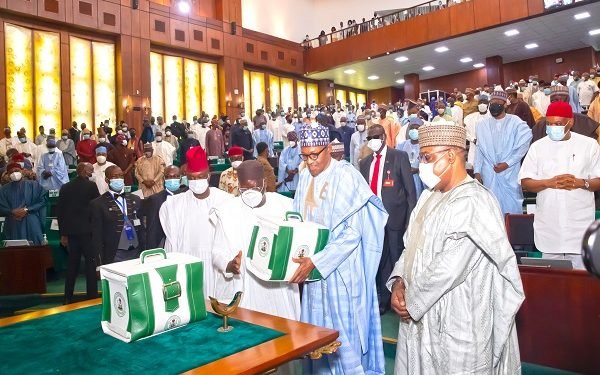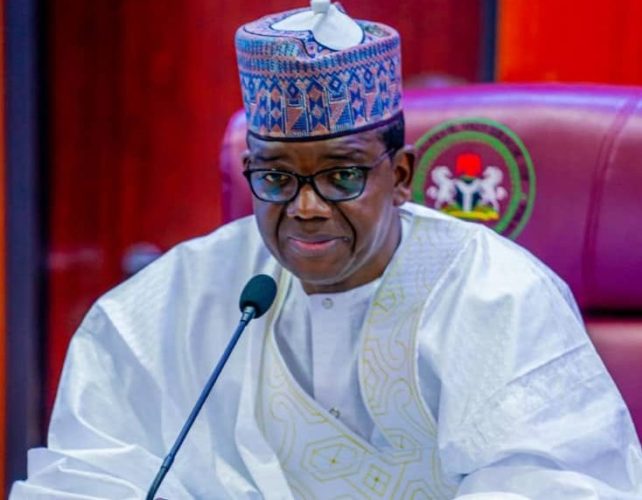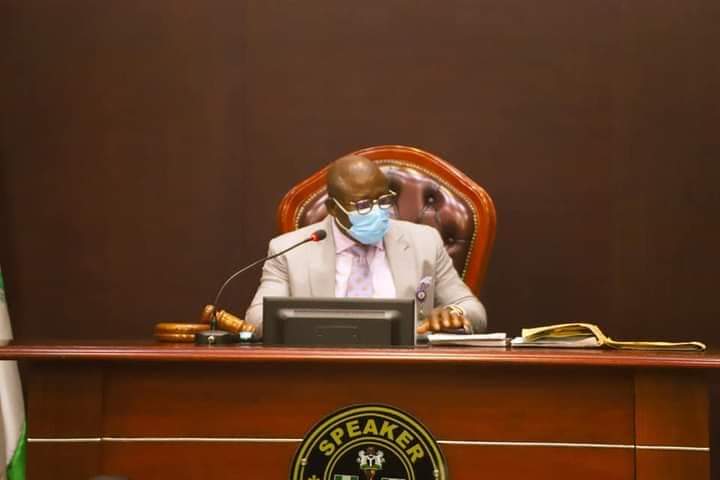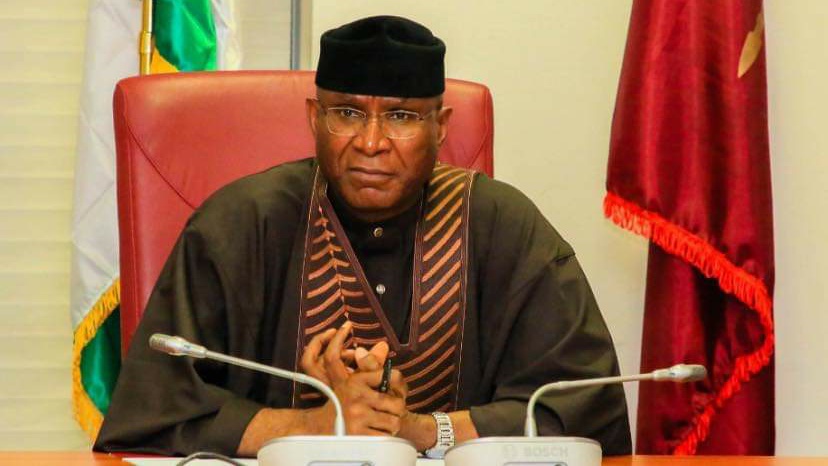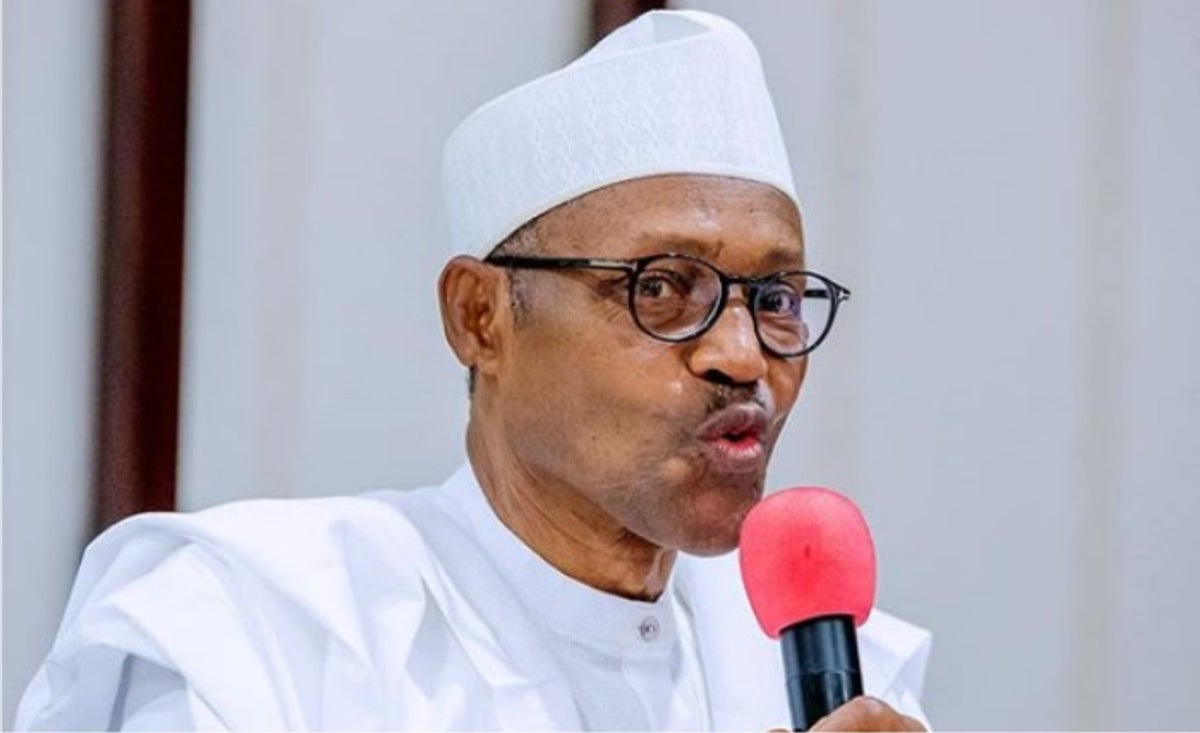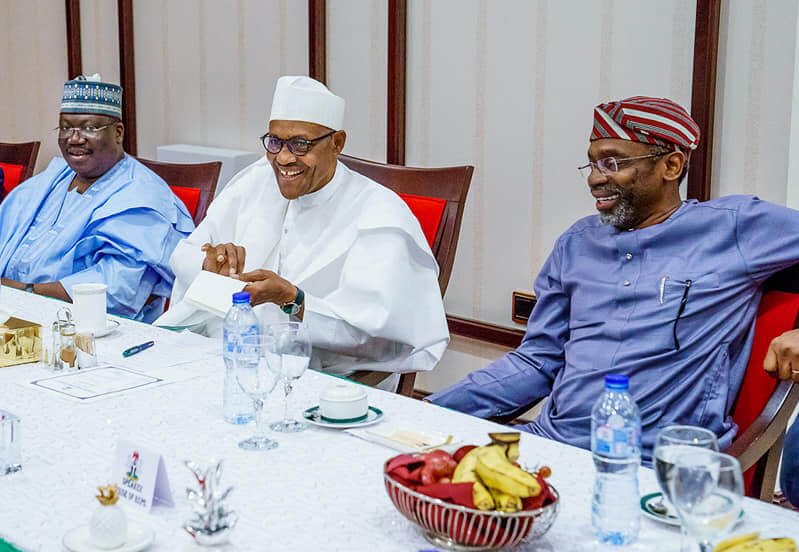The Socio-Economic Rights and Accountability Project (SERAP) has asked President Muhammadu Buhari to probe what it describes as 316 duplicated projects in the 2021 budget.
SERAP made the request known via a statement issued on Sunday by its Deputy Director, Kolawole Oluwadare, adding that President Buhari should direct the Minister of Justice, Abubakar Malami to carry out the investigation.
The group wants the Minister to also “investigate ministries, departments and agencies (MDAs), and members of the National Assembly suspected to be responsible for inserting N39.5bn for apparently 316 duplicated and mysterious projects in the 2021 budget.”
“Any such investigation should establish whether public funds have been mismanaged, diverted or stolen in the guise of implementing the duplicated and mysterious projects,” the statement partly read.
“Anyone suspected to be responsible should face prosecution as appropriate, if there is sufficient admissible evidence, and any stolen public funds should be fully recovered.”
READ ALSO: No Amount Of Intimidation Can Force Rivers To Concede To Secessionist Agenda – Wike
According to SERAP, the misallocation of public funds for duplicated and mysterious projects has seriously undermined the ability of the indicted MDAs, noting that the government should ensure respect for Nigerians’ human rights through developing and implementing well-thought-out policies, plans, and budgets.”
It also expressed concern that the N39.5bn duplicated and mysterious projects may have been used as a ploy to divert and steal vital resources from MDAs.
The statement added, “Budget allocations and expenditure ought to be well-suited to ensure access of Nigerians to basic public services, and responsive to the people’s needs in order to prevent corruption or unnecessary or wasteful spending.”
The letter, read in part: “BudgIT had in a report last week stated that there are 316 duplicated capital projects worth N39.5 billion in the 2021 budget. The duplicated and mysterious projects are contained in the 2021 appropriation bill of N13.588 trillion signed into law in December 2020.”
“These damning revelations suggest a grave violation of the public trust, and Nigerians’ rights to education, health, water, sanitation, and clean and satisfactory environment because the indicted MDAs have misallocated public funds at the expense of the people’s access to basic public services, and enjoyment of rights.”
“SERAP urges you to ask the heads of the MDAs involved to explain why they allegedly failed to ensure strict compliance with constitutional and international standards of transparency and accountability in the preparation, processes and decisions on their budgets, and to return any misallocated public funds to the public treasury.”
“Investigating and prosecuting any allegations of mismanagement, diversion and stealing of public funds budgeted for the 316 duplicated and mysterious projects would allow your government to use the budget to effectively promote Nigerians’ access to essential public goods and services.”
“It would also enable your government to meet Nigeria’s human rights obligations in the way the MDAs under your leadership and supervision allocate, spend and audit the budget.”
“Publishing the ‘implementation status’ of the duplicated and mysterious projects would allow Nigerians to hold their government to account in the spending of public funds. This is particularly true for marginalized and excluded groups, such as people living in poverty, women, children, and persons with disabilities, as the budget has a disproportionate impact on their welfare.”
“We would be grateful if the recommended measures are taken within 14 days of the receipt and/or publication of this letter. If we have not heard from you by then, the Incorporated Trustees of SERAP shall take all appropriate legal actions to compel your government to comply with our request in the public interest.”
“The revelations also suggest that the indicted MDAs lack transparent, accountable, effective and credible budgeting processes to prevent and combat corruption. SERAP is concerned that the Federal Government has not complied with Nigeria’s obligations under international human rights law.”
“SERAP notes that the budget is government’s most important economic policy document. A carefully and transparently developed, implemented and evaluated budget is central to ensuring access of Nigerians to essential public goods and services, and to the effective realization of all human rights.”
“SERAP also urges you to direct Mrs Zainab Ahmed, Minister of Finance Budget and National Planning to publish full details of current ‘implementation status’ of the duplicated and mysterious projects, and any spending on the projects to dated, including the 115 projects inserted in the budget of the Ministry of Health; the 23 projects inserted in the budget of the Ministry of Education, and 10 projects inserted in the budget of the Ministry of Water Resources.
“The following ministries are reportedly involved in the duplicated and mysterious projects: Ministry of Health with 115 projects; Ministry of Information and Culture with 40 projects; Ministry of Agriculture and Rural Development with 25 projects; Ministry of Education with 23 projects; Ministry of Transportation with 17 projects; and Ministry of Science and Technology with 17 projects.”
“Others are the Ministry of Environment with 13 projects; Ministry of Power with 11 projects; Ministry of Labour and Employment with 11 projects, and Ministry of Water Resources with 10 projects.”
“According to our information, the security sector received N10.02tn between 2015 and 2021 but without details about how the money has been spent. A total of 117 federal agencies received allocations in the 2021 budget for “security votes” worth N24.3 billion.”
The letter was copied to Mr Malami; Professor Bolaji Owasanoye, Chairman Independent Corrupt Practices and Other Related Offences Commission (ICPC); Mr Abdulrasheed Bawa, Chairman, Economic and Financial Crimes Commission (EFCC); and Mrs Ahmed.
Kolawole Oluwadare
SERAP Deputy Director
9/5/2021


